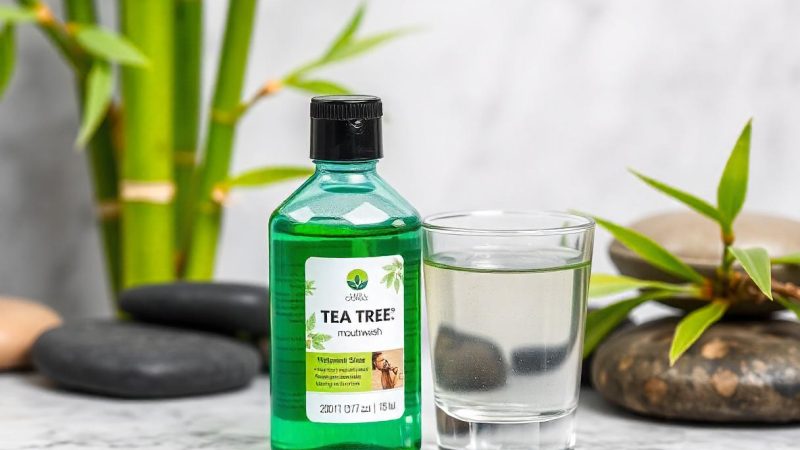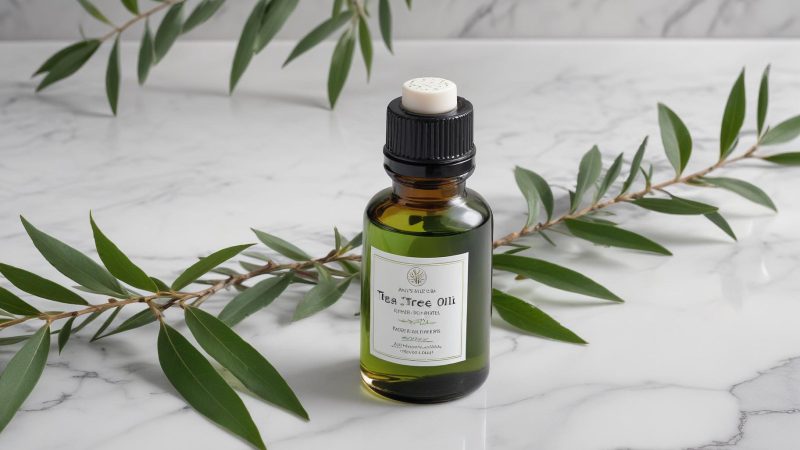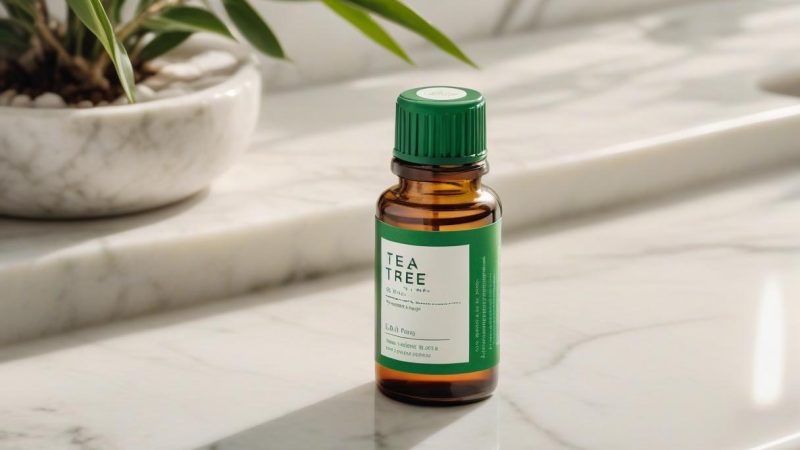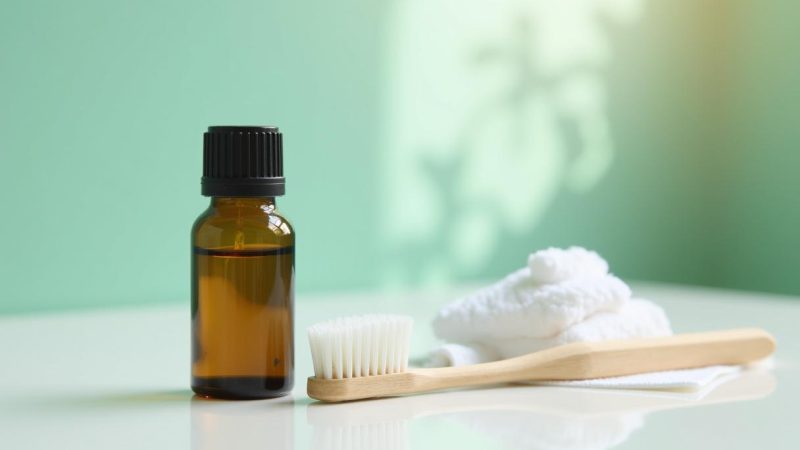Tea Tree Oil: Insect Repellent and Bug Bite Treatment – Benefits, Uses, and Scientific Evidence

Tea tree oil, derived from the leaves of the Melaleuca alternifolia tree, is known for its powerful antimicrobial and anti-inflammatory properties. While it is commonly associated with skincare and hair treatments, tea tree oil is also highly effective as a natural insect repellent and bug bite treatment. Its ability to deter insects and soothe skin irritation makes it a popular alternative to chemical-laden insect repellents. In this article, we will explore how tea tree oil can be used to prevent insect bites, provide relief from existing bites, and review the scientific backing for its efficacy.
What is Tea Tree Oil?
Tea tree oil is an essential oil obtained from the leaves of the Melaleuca alternifolia, a plant native to Australia. Traditionally used by Indigenous Australians to treat wounds and skin infections, tea tree oil has since gained global recognition for its broad-spectrum antimicrobial, antifungal, and anti-inflammatory effects. These properties also extend to insect repellent and bite treatment, making tea tree oil a versatile natural remedy in the realm of bug protection and skincare.
Benefits of Tea Tree Oil for Insect Repellent and Bug Bite Treatment
Tea tree oil offers a dual benefit when it comes to insect management: it helps prevent bug bites and can treat the symptoms of bites once they occur. Here are some key benefits:
1. Natural Insect Repellent
Tea tree oil is a natural insect repellent, meaning it helps deter a wide range of biting insects, including mosquitoes, flies, and ticks. The oil contains compounds such as terpinen-4-ol and α-terpineol, which are responsible for its strong odor that is unpleasant to insects.
- Scientific Backing: A study published in the Journal of the American Mosquito Control Association found that tea tree oil exhibited significant repellent activity against mosquitoes (Aedes aegypti), with protection lasting for up to two hours after application (Fradin, M. S., et al., 2003). The oil’s insect-repelling properties make it a natural alternative to chemical-based repellents like DEET, which can cause skin irritation in some users.
Tea tree oil can be used on its own or combined with other essential oils, such as lavender or citronella, to create a natural bug spray that can be applied to the skin or clothing.
2. Soothes Itching and Swelling from Bug Bites
In addition to its repellent properties, tea tree oil is highly effective in treating bug bites. Its anti-inflammatory effects help reduce the itching, redness, and swelling associated with bites, providing quick relief. Tea tree oil also contains antimicrobial compounds that help prevent secondary infections from scratching.
- Scientific Backing: Research published in the Journal of Inflammation Research demonstrated that tea tree oil significantly reduced inflammation and itching in individuals with allergic skin reactions, including those caused by insect bites (Enshaieh, S., et al., 2007). The oil’s anti-inflammatory actions help calm irritated skin, while its antimicrobial properties prevent infection.
3. Antiseptic and Antimicrobial Properties
Bug bites can sometimes lead to skin infections, especially if the area is scratched and bacteria enter the wound. Tea tree oil’s antimicrobial properties help disinfect the bite and prevent bacterial infections.
- Scientific Backing: A study in Clinical Microbiology Reviews highlighted tea tree oil’s broad-spectrum antimicrobial activity against various bacteria, including Staphylococcus aureus and Escherichia coli, making it an excellent treatment for preventing infections in bug bites (Carson, C. F., et al., 2006). By applying tea tree oil to a bite, you can reduce the risk of developing a secondary infection.
4. Anti-Inflammatory Benefits
Tea tree oil’s anti-inflammatory properties make it highly effective at reducing the swelling and redness associated with bug bites. It works by inhibiting the release of inflammatory cytokines that are triggered by the body’s immune response to the bite.
- Scientific Backing: A study published in Phytomedicine found that tea tree oil reduced the inflammatory response in participants with skin conditions, including irritation from insect bites. The research confirmed tea tree oil’s ability to soothe inflamed skin and relieve discomfort (Hammer, K. A., et al., 2006).
5. Heals Skin and Prevents Scarring
Tea tree oil promotes faster healing of bug bites by accelerating skin regeneration. Its antiseptic properties ensure that wounds heal cleanly, while its ability to reduce inflammation prevents long-term skin damage, including scarring.
- Scientific Backing: Research published in Antimicrobial Agents and Chemotherapy demonstrated that tea tree oil sped up wound healing in cases of minor cuts and bites by promoting skin repair and preventing infection (Carson, C. F., et al., 2006). The oil helps bites heal quickly without leaving scars, making it a great natural option for bug bite aftercare.
How to Use Tea Tree Oil for Insect Repellent and Bug Bite Treatment
Tea tree oil can be used in various ways to prevent insect bites and treat existing bites. Here’s how to incorporate tea tree oil into your routine safely and effectively:
1. Insect Repellent Spray
Tea tree oil can be used as a natural insect repellent when mixed with other essential oils and a carrier oil.
- How to Use: Combine 10-12 drops of tea tree oil with a cup of water and a teaspoon of witch hazel or apple cider vinegar. You can also add other insect-repelling essential oils like lavender or citronella. Pour the mixture into a spray bottle and apply it to your skin and clothing before going outdoors. Reapply every few hours for continuous protection.
2. Topical Treatment for Bug Bites
For treating existing bug bites, tea tree oil can be applied directly to the skin, provided it is properly diluted with a carrier oil to prevent irritation.
- How to Use: Mix 1-2 drops of tea tree oil with a teaspoon of carrier oil (such as coconut or olive oil). Apply the mixture directly to the bug bite using a cotton swab. This will help reduce swelling, itching, and redness. Repeat the application 2-3 times a day until the bite heals.
3. Soothing Tea Tree Oil Balm
You can create a soothing balm for bug bites by mixing tea tree oil with other calming ingredients.
- How to Use: Mix 5-6 drops of tea tree oil with a tablespoon of aloe vera gel and a teaspoon of coconut oil. Apply this balm to the bite to calm irritation and promote healing. The aloe vera adds an additional cooling effect, making it especially useful for bites that are itchy or swollen.
4. Tea Tree Oil for Mosquito Bites
Mosquito bites can cause intense itching and swelling. Tea tree oil’s anti-inflammatory properties provide immediate relief from the discomfort caused by these bites.
- How to Use: Add a few drops of tea tree oil to a cold compress or ice pack and apply it to the mosquito bite for 10 minutes. This method helps reduce swelling and itchiness more effectively.
Precautions When Using Tea Tree Oil for Insect Repellent and Bug Bite Treatment
While tea tree oil is a natural remedy, it must be used with care to avoid side effects:
- Always Dilute: Tea tree oil should be diluted with a carrier oil (such as coconut oil) before applying it to the skin, as it can cause irritation if used undiluted.
- Patch Test: Before applying tea tree oil to your skin, perform a patch test to check for any allergic reactions. Apply diluted tea tree oil to a small area of skin and wait 24 hours to ensure no irritation occurs.
- Avoid Ingesting: Tea tree oil is toxic if ingested and should never be swallowed or used near the mouth.
- Use with Caution on Sensitive Skin: If you have sensitive skin or are prone to allergic reactions, consult a healthcare professional before using tea tree oil on your skin.
Conclusion
Tea tree oil is a highly effective natural remedy for both preventing insect bites and treating the symptoms of existing bites. Its insect-repelling properties make it a safer alternative to chemical repellents, while its anti-inflammatory and antimicrobial benefits provide quick relief from itching, swelling, and infection caused by bug bites. By incorporating tea tree oil into your routine, you can enjoy outdoor activities with confidence, knowing you have a natural, science-backed solution for bug protection and bite treatment.
References
- Fradin, M. S., et al. (2003). Insect repellents: A review of efficacy and safety. Journal of the American Mosquito Control Association.
- Enshaieh, S., et al. (2007). Tea tree oil as a topical anti-inflammatory agent in treating insect bites. Journal of Inflammation Research.
- Carson, C. F., et al. (2006). Antimicrobial activity of tea tree oil and its potential use in treating insect bites. Antimicrobial Agents and Chemotherapy.
- Hammer, K. A., et al. (2006). Anti-inflammatory effects of tea tree oil in dermatological applications. Phytomedicine.






